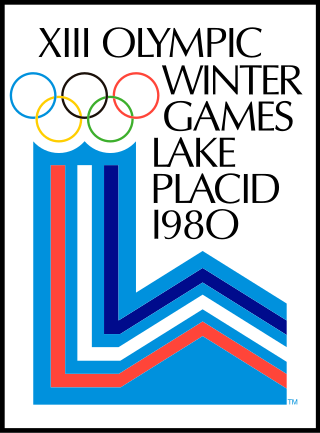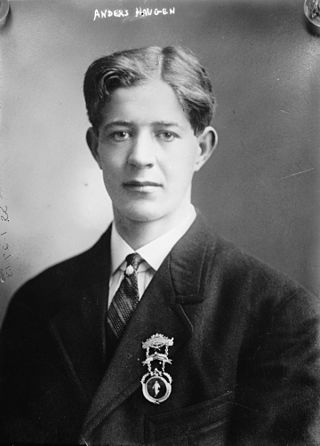
The Winter Olympic Games, also known as the Winter Olympics, is a major international multi-sport event held once every four years for sports practiced on snow and ice. The first Winter Olympic Games, the 1924 Winter Olympics, were held in Chamonix, France. The modern Olympic Games were inspired by the ancient Olympic Games, which were held in Olympia, Greece, from 776 BCE to 394 CE. The Baron Pierre de Coubertin of France founded the International Olympic Committee (IOC) 1,500 years later in 1894, leading to the first modern Summer Olympic Games in Athens, Greece in 1896. The IOC is the governing body of the Olympic Movement, with the Olympic Charter defining its structure and authority. The original five Winter Olympic Sports were bobsleigh, curling, ice hockey, Nordic skiing, and skating. The Games were held every four years from 1924 to 1936, interrupted in 1940 and 1944 by World War II, and resumed in 1948. Until 1992, the Summer Olympic Games and the Winter Olympic Games were held in the same year. A decision to change this was made in 1986, when during the 91st International Olympic Committee session, IOC members decided to alternate the Summer Olympic Games and the Winter Olympic Games on separate four-year cycles in even-numbered years. Also, at that same congress it was decided that 1992 Winter Olympics would be the last to be held in the same year as the Summer Games and that to change the rotation, the games that would be held in 1996 would be brought forward by two years, being scheduled to 1994. After those games, the next were to be held in 1998 when the four-year Olympic Cycle resumed.

The 1948 Winter Olympics, officially known as the V Olympic Winter Games and commonly known as St. Moritz 1948, were a winter multi-sport event held from 30 January to 8 February 1948 in St. Moritz, Switzerland. The Games were the first to be celebrated after World War II; it had been twelve years since the last Winter Games in 1936.

The 1928 Winter Olympics, officially known as the II Olympic Winter Games and commonly known as St. Moritz 1928, were an international winter multi-sport event that was celebrated from 11 to 19 February 1928 in St. Moritz, Switzerland.

The 1924 Winter Olympics, officially known as the I Olympic Winter Games and commonly known as Chamonix 1924, were a winter multi-sport event which was held in 1924 in Chamonix, France. Originally held in association with the 1924 Summer Olympics, the sports competitions were held at the foot of Mont Blanc in Chamonix, and Haute-Savoie, France between 25 January and 5 February 1924. The Games were organized by the French Olympic Committee, and were originally reckoned as the "International Winter Sports Week". With the success of the event, it was retroactively designated by the International Olympic Committee (IOC) as "the first Olympic Winter Games".

The 1924 Summer Olympics, officially the Games of the VIII Olympiad and officially branded as Paris 1924, were an international multi-sport event held in Paris, France. The opening ceremony was held on 5 July, but some competitions had already started on 4 May. The Games were the second to be hosted by Paris, making it the first city to host the Olympics twice.

The 1992 Winter Olympics, officially known as the XVI Olympic Winter Games and commonly known as Albertville '92, were a winter multi-sport event held from 8 to 23 February 1992 in and around Albertville, France. Albertville won the bid to host the Winter Olympics in 1986, beating Sofia, Falun, Lillehammer, Cortina d'Ampezzo, Anchorage, and Berchtesgaden. The 1992 Winter Olympics were the last winter games held in the same year as the Summer Olympics. The Games were the fifth Olympic Games held in France and the country's third Winter Olympics, after the 1924 Winter Games in Chamonix and the 1968 Winter Games in Grenoble. This games was the first of two consecutive Olympic games to be held in Western Europe, preceding the 1992 Summer Olympics in Barcelona, Spain.

The 1980 Winter Olympics, officially the XIII Olympic Winter Games and also known as Lake Placid 1980, were an international multi-sport event held from February 13 to 24, 1980, in Lake Placid, New York, United States.

The 1952 Winter Olympics, officially known as the VI Olympic Winter Games and commonly known as Oslo 1952, were a winter multi-sport event held from 14 to 25 February 1952 in Oslo, the capital of Norway.
1924 in sports describes the year's events in world sport.
At the 1924 Winter Olympics one individual Nordic combined event was contested. It was held on Saturday, February 2, 1924 and on Monday, February 4, 1924. Unlike today the ski jump was the last event held. Both events were also individual medal events. The winner, Thorleif Haug was also the winner of both cross-country skiing races, and the podium was identical to that in the 50 km cross-country.

The 1924 Winter Olympics, officially known as the I Olympic Winter Games, and known at the time as Semaine Internationale des Sports d'Hiver, was a winter multi-sport event held in Chamonix, France, from 25 January to 5 February 1924. Norway topped the table, collecting seventeen medals in total, including four gold, three of which were won by Thorleif Haug in the Nordic combined and cross-country skiing events. Norway also achieved two podium sweeps, winning all three medals in both the 50 km cross-country skiing and the Nordic combined. This remained a record at the Winter Olympics until 2014.
At the 1924 Winter Olympics, in Chamonix, France, a military patrol competition was held. The Olympic results database lists the official medal winners for the event, as does the Official Report (1924), yet several sources have incorrectly counted this competition as a demonstration event only. The event was also demonstrated in 1928, 1936, and 1948, but those results are still considered unofficial. A full 36 years would pass before the modern version of the sport, biathlon, became an official Winter Olympic sport. The official website of the IOC now treats Men's Military Patrol at the 1924 Games as a separate discipline, without mixing it with the sports of Skiing or Biathlon. However, the 1924 Official Report treats it as an event within the sport of skiing.

Thorleif Haug was a Norwegian skier who competed in nordic combined and cross-country. At the 1924 Olympics he won all three Nordic skiing events. He was also awarded the bronze medal in ski jumping, but 50 years later a mistake was found in calculation of scores, Haug was demoted to fourth place, and his daughter presented her father's medal to Anders Haugen.

The U.S. Ski Team, operating under the auspices of U.S. Ski & Snowboard, develops and supports men's and women's athletes in the sports of alpine skiing, freestyle skiing, cross-country, ski jumping, and Nordic combined. Since 1974 the team and association have been headquartered in Park City, Utah.
At the 1924 Winter Olympics, two cross-country skiing events were held. The 50 km competition was held on Wednesday, 30 January 1924 and the 18 km competition was held on Saturday, 2 February 1924. The events were also part of the FIS Nordic World Ski Championships as well, which would be combined until the 1980 Winter Olympics.

Ski jumping has been included in the program of every Winter Olympic Games. From 1924 through to 1956, the competition involved jumping from one hill whose length varied from each edition of the games to the next.

Anders Olsen Haugen was a Norwegian-American ski jumper who won four national ski jumping championships. He competed in the 1924 Winter Olympics in Chamonix and the 1928 Winter Olympics in St. Moritz. Anders Haugen was the first and, as of 2022, only American to win an Olympic medal for ski jumping.

The United States competed at the 1924 Winter Olympics in Chamonix, France.













